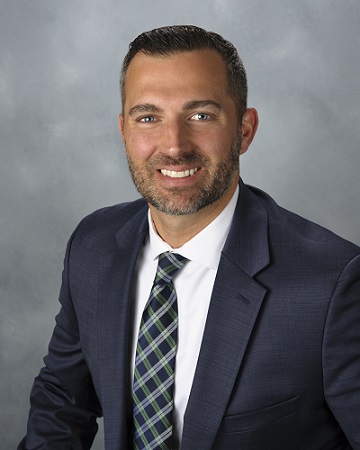Jason Kulak was recently hired as vice president and controller for Centreville Bank. He previously served as the risk and controls manager at BrightSphere Investment Group in Boston, as well as spent 14 years in the auditing department for Wolf & Co. P.C. He has bachelor’s and master’s degrees in accounting, both from the University of Massachusetts Amherst.
PBN: What does your new role with Centreville Bank entail?
KULAK: My role at Centreville Bank entails leading the bank’s accounting team and maintaining general accounting functions such as the general ledger, fixed assets, investments and accounts payable. I am also involved in financial reporting, audit engagements and regulatory examinations, as well as technology improvements.
PBN: How does the growth of Centreville translate to or increase the importance of the need for proper accounting and auditing?
KULAK: Proper accounting and auditing are necessary in any environment but takes on enhanced importance as growth often leads to change. With change often comes new products and/or services and the need to understand new accounting rules or processes related to those new products and/or services. To me, that is one of the more exciting things about my role at the bank. Centreville Bank is definitely in growth mode, which allows me opportunities to expand my knowledge base and tackle new situations that arise.
PBN: What are the biggest challenges facing the banking industry generally in terms of bookkeeping and audits?
KULAK: Currently the biggest challenge facing the industry in terms of accounting is CECL – current expected credit losses. The allowance for loan losses is the most significant estimate on the bank’s financial statements and CECL is fundamentally changing how we account for the allowance for loan losses.
PBN: How, if at all, has the pandemic permanently changed the accounting and bank audit process?
KULAK: As I am sure most people are aware, the biggest change has been the switch to a remote environment. While we have returned to the office, many of the audits that the bank goes through are being done remotely, which has required employees to be able to adapt quickly to new technologies and not having that face-to-face conversation. I also think the pandemic has given us opportunities to change the way we think about how we do things in the future as individual preferences change.
PBN: How does your work at Centreville differ from your prior positions with asset management and accounting firms in Boston?
KULAK: During my first 14 years after college at Wolf & Co. in Boston, I often worked on the road at various client sites very similar to Centreville Bank. Now, I’m going to the same office every day, which is quite different but is a nice change for me and where I am in my career.
I think the biggest change between my prior positions and my new role at Centreville Bank is the ability to effect change and being part of the decision-making process at the bank. Management definitely values the ideas of all employees and empowers individuals to come up with new ideas that contribute to the overall success of the bank.
Nancy Lavin is a PBN staff writer. You may reach her at Lavin@PBN.com.











